
Revista Mexicana de Ingenieria Quimica
Scope & Guideline
Innovative Insights for a Sustainable Future
Introduction
Aims and Scopes
- Chemical Process Engineering:
Research focusing on the design, optimization, and simulation of chemical processes, including reactor design, separation processes, and thermodynamics. - Biochemical Engineering:
Studies involving the application of biological principles to the development of processes for the production of biofuels, biochemicals, and other biomaterials. - Environmental Engineering and Sustainability:
Research aimed at developing sustainable processes for waste treatment, pollution control, and resource recovery, addressing pressing environmental concerns. - Materials Science and Engineering:
Investigations into the synthesis and characterization of new materials, including biodegradable polymers and nanomaterials, with applications in various industries. - Food Engineering and Biotechnology:
Exploration of processes related to food production, preservation, and safety, including the use of biotechnological approaches to enhance food quality. - Process Optimization and Modeling:
Methodological advancements in modeling chemical and biological processes, focusing on optimization techniques and computational approaches.
Trending and Emerging
- Sustainable Materials Development:
There is an increasing trend in research focused on developing biodegradable and sustainable materials, reflecting global efforts to reduce plastic waste and environmental impact. - Bioengineering and Bioprocessing:
Emerging interest in bioengineering techniques for the production of biofuels, bioplastics, and other bioproducts is evident, showcasing the integration of biotechnology in chemical engineering. - Advanced Wastewater Treatment Technologies:
Research centered on novel wastewater treatment methods, including electrocoagulation and photocatalysis, is gaining traction as industries seek more effective and sustainable solutions. - Nanotechnology Applications:
The application of nanotechnology in various fields, including drug delivery, environmental remediation, and materials science, is increasingly prominent in recent studies. - Food Process Engineering Innovations:
Research focusing on innovative food processing methods, including encapsulation and functional food development, is on the rise, reflecting consumer demand for healthier food options. - Machine Learning and Artificial Intelligence in Process Optimization:
The integration of machine learning and AI in optimizing chemical processes and predictive modeling is emerging as a significant trend, showcasing the intersection of technology and engineering.
Declining or Waning
- Conventional Chemical Processes:
Research focused on traditional chemical methods and processes is decreasing as there is a growing emphasis on green chemistry and sustainable alternatives. - Petroleum Engineering and Oil Recovery Techniques:
While still relevant, studies primarily centered on traditional petroleum extraction techniques have diminished in favor of more sustainable and innovative approaches, including bioremediation. - Chemical Safety Protocols:
Research dedicated to chemical safety protocols and regulations has waned as more emphasis is placed on innovative technologies that inherently incorporate safety and environmental considerations. - Basic Thermodynamics Studies:
Papers that focus solely on theoretical thermodynamics without practical applications are becoming less common, as researchers seek to apply these principles to real-world problems. - Synthetic Chemistry without Environmental Considerations:
The focus on synthetic chemistry that does not address environmental impact or sustainability is declining, reflecting a broader trend towards eco-friendly methodologies.
Similar Journals

ChemEngineering
Innovative Solutions for Today's Chemical Engineering ChallengesChemEngineering is a prominent open-access journal published by MDPI that has been dedicated to the dissemination of high-quality research in the field of chemical engineering since its inception in 2017. Operating out of Switzerland, this journal addresses a diverse range of topics, including energy production, process optimization, and innovations in materials science, thereby attracting contributions from researchers and professionals worldwide. With an impressive Q2 ranking in Chemical Engineering and Engineering, as well as a Q3 ranking in Energy for 2023, ChemEngineering is positioned as a crucial platform for advancing knowledge in its fields. The journal's commitment to open access ensures that its content is readily available to a broad audience, promoting the free exchange of ideas and fostering collaborations. Researchers, professionals, and students alike benefit from the journal's focus on cutting-edge research, making it an essential resource for anyone interested in the ever-evolving landscape of chemical engineering.
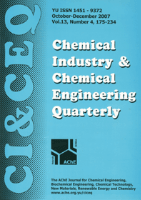
Chemical Industry & Chemical Engineering Quarterly
Pioneering Research for a Sustainable Chemical Future.Chemical Industry & Chemical Engineering Quarterly is a distinguished, open-access journal published by ASSOC CHEMICAL ENG that serves as a vital platform for innovative research within the field of chemical engineering. Established in 2000 and actively disseminating knowledge since then, this journal has garnered acknowledgment for its contribution to the field, currently being ranked in the third quartile (Q3) of Chemical Engineering (Miscellaneous) for 2023. With a focus on advancing understanding of chemical processes and facilitating the integration of industry operations with engineering principles, it provides a forum for both theoretical and applied research. The journal is committed to maintaining high standards of academic rigor, supported by its indexed presence in Scopus, where it ranks #173 out of 273 in the general chemical engineering category. As an open-access journal, it promotes the rapid dissemination of research findings, enhancing accessibility for scholars, professionals, and students worldwide. Based in Serbia, the journal is an essential resource for those seeking to stay at the forefront of chemical engineering advancements.

Eurasian Chemico-Technological Journal
Catalyzing Global Dialogue in Chemical and Technological AdvancementsEurasian Chemico-Technological Journal, published by the Institute of Higher Education Academy of Sciences in Kazakhstan, serves as a dynamic platform for scholars and professionals engaged in the interdisciplinary fields of chemical engineering, chemistry, condensed matter physics, and materials science. Since its inception in 1999, the journal has embraced an open access model, enabling broad dissemination of research findings and fostering collaborative innovation across borders. With an ISSN of 1562-3920 and a converged publication schedule extending from 2007 to 2024, it continues to contribute to the global academic dialogue, despite its current standing in Q4 quartiles across several categories on Scopus. The journal ranks in the lower percentiles within its respective fields, yet it remains a valuable resource for emerging research and perspectives within the scientific community. This journal is essential for both seasoned researchers and students, as it reflects the evolving landscape of chemico-technological research while promoting engagement with contemporary issues in the sciences.
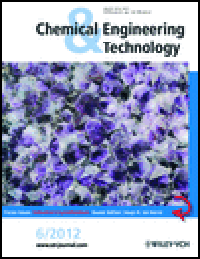
CHEMICAL ENGINEERING & TECHNOLOGY
Connecting Theory and Practice in Chemical EngineeringChemical Engineering & Technology is a prestigious journal published by Wiley-VCH Verlag GmbH, focusing on the evolving field of chemical engineering and its related disciplines. With an ISSN of 0930-7516 and E-ISSN of 1521-4125, the journal has established a robust platform for researchers and practitioners to share pioneering studies and innovative technologies within the field. Classified in the second quartile (Q2) across multiple categories such as Chemical Engineering, Chemistry, and Industrial and Manufacturing Engineering, it holds an impressive rank in the Scopus database, indicating its significant contribution to the academic community. The journal's commitment to advancing knowledge is reflected in its extensive convergence of research from 1987 to 2024, providing a comprehensive archive of scholarly work. Researchers, professionals, and students benefit from the latest insights and findings, enriching the dialogue around chemical processes and methodologies. Though it operates under a traditional subscription model, the accessibility of this journal is crucial for those engaged in both theoretical and applied aspects of chemical engineering.
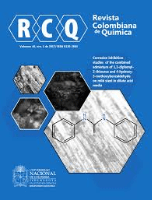
Revista Colombiana de Quimica
Fostering Collaboration in Chemical Research.Revista Colombiana de Quimica, published by the Universidad Nacional de Colombia, Departamento de Química, is a distinguished open access journal that has been serving the chemistry community since 1971. With an ISSN of 0120-2804 and an E-ISSN of 2357-3791, this journal presents a platform for researchers, professionals, and students to share and disseminate their findings in the field of chemical sciences. Positioned in the Q4 quartile in the 2023 rankings, this journal focuses on a diverse spectrum of topics within general chemistry, cultivating a rich discourse among scholars and practitioners in Colombia and beyond. Although the journal currently ranks 294 out of 408 in the field, its commitment to open access research ensures that valuable scientific knowledge is accessible to a wider audience, thus facilitating collaboration and advancement in the chemical sciences. As it converges from 2008 to 2022, the Revista Colombiana de Quimica remains a vital resource for anyone looking to contribute to or stay abreast of developments in chemistry.
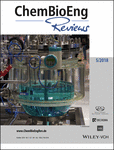
ChemBioEng Reviews
Exploring the Synergy of Chemistry and BiologyChemBioEng Reviews is a premier academic journal dedicated to advancing the fields of biochemistry, bioengineering, and chemical engineering. Published by WILEY-V C H VERLAG GMBH, this journal serves as an essential platform for researchers and professionals seeking to disseminate groundbreaking insights and innovations. With a remarkable impact factor and a solid reputation, it is ranked in the top quartile (Q1) across multiple disciplines, including Biochemistry, Bioengineering, and Industrial and Manufacturing Engineering. The journal's comprehensive scope covers the synthesis, analysis, and application of bioengineered solutions, making it a vital resource for anyone involved in process chemistry and technology. With an unwavering commitment to high-quality scientific discourse from 2014 to 2024, ChemBioEng Reviews is not only pivotal for the academic community but also contributes to industry advancements in filtration, separation processes, and the intersection of chemical and biological engineering.
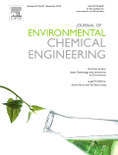
Journal of Environmental Chemical Engineering
Pioneering research for a sustainable future.Journal of Environmental Chemical Engineering, published by Elsevier in the United Kingdom, stands at the forefront of integrative research in the field of environmental science and engineering. With an impressive impact factor that places it in the top quartile (Q1) across multiple categories, including Chemical Engineering (Miscellaneous), Pollution, and Waste Management, it serves as a vital resource for researchers and professionals dedicated to advancing sustainable chemical processes and technologies. Since its inception in 2013, this journal has continually focused on fostering innovation and disseminating knowledge that addresses global environmental challenges. With rankings that highlight its influence—22nd in Environmental Science & Pollution and 11th in Process Chemistry & Technology—the journal publishes high-quality articles that span both theoretical investigations and applied research. This dedication to excellence culminates in a comprehensive platform that not only shares significant advancements but also shapes the future directions of environmental chemical engineering.
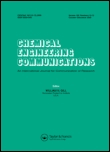
CHEMICAL ENGINEERING COMMUNICATIONS
Pioneering Research for a Sustainable Future.Chemical Engineering Communications, published by Taylor & Francis Inc, is a distinguished journal within the realms of Chemical Engineering and Chemistry. With an ISSN of 0098-6445, this journal plays a pivotal role in disseminating innovative research, critical reviews, and insightful discussions that encompass a broad spectrum of topics in these fields. The journal boasts a commendable Q2 ranking in the 2023 category of chemical engineering and general chemistry, reflecting its significant contribution to the scientific community. Operating under a rigorous peer-review process, the journal attracts high-quality submissions from global researchers. Although currently not an Open Access journal, it provides extensive archive access for users interested in exploring past advancements from its inception in 1973 through to 2024. With a commitment to advancing knowledge and fostering collaboration among academia and industry, Chemical Engineering Communications remains an essential resource for professionals and students aiming to stay abreast of the latest developments in chemical sciences.
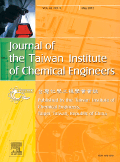
Journal of the Taiwan Institute of Chemical Engineers
Empowering global collaboration in chemical sciences.The Journal of the Taiwan Institute of Chemical Engineers is a prestigious publication in the field of chemical engineering and chemistry, published by Elsevier. With an impressive impact factor placing it in the top quartiles (Q1) of both the Chemical Engineering (miscellaneous) and Chemistry (miscellaneous) categories, this journal serves as a vital platform for disseminating cutting-edge research and innovative findings. Since its inception in 2009 and continuing through 2024, it has established a strong reputation with notable Scopus rankings—ranked 40th out of 273 in General Chemical Engineering and 62nd out of 408 in General Chemistry, reflecting the journal’s significance in its field. By offering open access options, the journal ensures that research is readily available to a global audience, fostering collaboration and knowledge exchange among researchers, professionals, and students. The Journal of the Taiwan Institute of Chemical Engineers is dedicated to advancing the discipline of chemical engineering and supporting the development of novel scientific methodologies and applications.
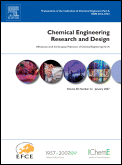
CHEMICAL ENGINEERING RESEARCH & DESIGN
Unveiling New Horizons in Chemical Engineering.CHEMICAL ENGINEERING RESEARCH & DESIGN is a prestigious journal that has been at the forefront of dissemination in the fields of chemical engineering and general chemistry since its inception in 1983. Published by Elsevier, the journal features a rich array of research articles that contribute to both theoretical and practical advancements in the discipline. With an impact factor that positions it strongly within the Q2 quartile for both Chemical Engineering and Chemistry categories, it occupies an esteemed place in the academic community, being ranked #77 out of 273 in Chemical Engineering and #111 out of 408 in General Chemistry on Scopus. Researchers and professionals will find it an invaluable resource for cutting-edge research and innovative methodologies that shape the future of chemical engineering applications. While the journal does not currently offer open access, it remains accessible through institutional subscriptions, ensuring that important findings continue to reach a broad audience. With a scope that is poised to expand through 2024, the journal aims to foster collaboration and knowledge sharing, supporting the continuous evolution of the field.